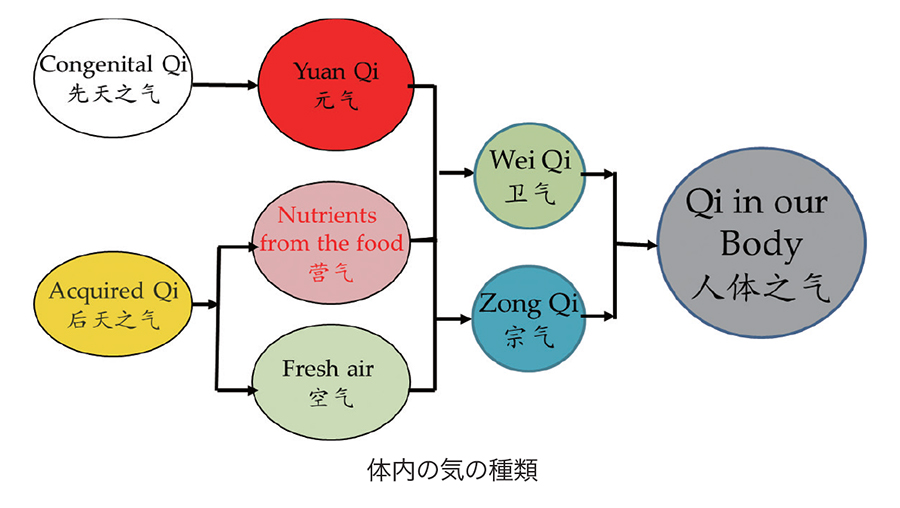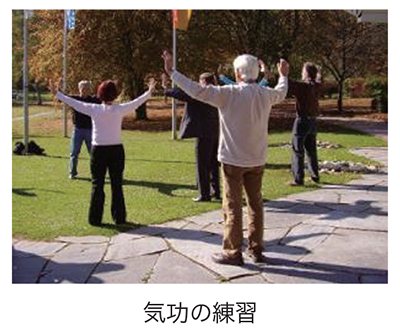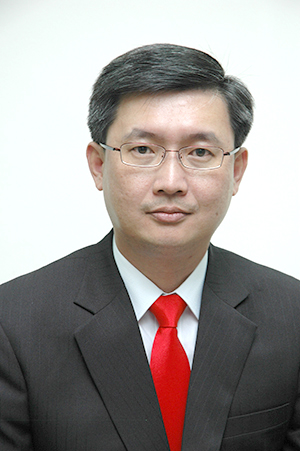Mental and physical self-care (news from the lecture) (Dec issue 2022)
30 Nov 2022
May The “Qi” Be With You!
The word Qi 气 (pronounced “chee”) has been one of the most controversial and misunderstood word for people who may not have a full understanding of Chinese Medicine.
From the philosophical perspective, there exists a trinity Qi relationship between the 3 pillars of the universe: Heaven (天”Tian”), Human (人”Ren”) and Earth (地”Di”). It is only when this trinity relationship is in balance from the holistic theory that lifeform on earth will be in abundance and equilibrium.
The Heaven Qi is most important, consisting of forces such as sunshine, moonlight, gravity and energy from the stars and planets.
The Earth Qi is regulated by Heaven Qi and according to Chinese theory, it is made up of lines and patterns of energy, the earth’s magnetic field and underground heat provides abundant supply for all things on Earth to survive.
The Human Qi, each person has their own internal Qi which always seeks to achieve balance.
As such, besides Chinese Medicine, the word Qi has permeated into all parts of Chinese culture and language where we use it to explain the vitality of the energy as well as the functionality of elements. Such as
- 生气(Angry – a burst of energy),
- 天气(Weather – the nature of the environment),
- 勇气(Courage – the ability to fight or defend),
- 气质 (Temperament – a person's natural behaviour),
- 小气(Stingy – the inability to give),
- 大气层(The atmosphere), etc.
Besides being used to help to explain the energetic substance or "life force" circulating through the human body and actuating on body’s motions, Qi is also used to explain the functionality and vitality of different organ visceral systems.
Sources and Types of Qi
According to Chinese Medicine, there are two major sources of Qi within the human body. The Congenital Qi (Prenatal or Innate Essence Qi) exists right after the formation of an individual’s life. This kind of Qi - inherited from our parents - is the foundation of the development of new life. After birth, the human body absorbs nutrients from the external world to nourish the Congenital Qi. The Acquired Qi (Post-natal Qi), which is the Qi that we generate within our lifetime from the air that we inhale, and the food that we eat. Thus, if one is not blessed with a good Congenital Qi, one can always attain healthy body through Acquired Qi.
To help in the diagnosis and determination of the states of heath of an individual, Chinese Medicine further classifies Qi into the following types.
- The Primordial Qi(Yuan Qi元气), also known as genuine qi (Zheng Qi 正气) is the most important of the four kinds of Qi. It is the primary drawing force of one’s life activities. When someone is seriously injured, we use the Chinese idiom “元气大伤” (Yuan Qi Da Shang) to describe his dire state of health.
- The Pectoral Qi(Zong Qi宗气), is a combination of the fresh air we inhale and the food we eat. The Pectoral Qi travels through the respiratory tract to promote respiration and influences the quality of one’s voice, speech and breathing. Thus when someone is unable to project his voice, we use the Chinese idiom “宗气不足” (Zong Qi Bu Zu) to explain his state of health.
- The Nutritive Qi(Ying Qi营气), is the qi that circulates together with blood through the vessels of our bodies. The Nutritive Qi is responsible for blood production and nutrition for the whole body. When we see someone who is undernourished, we use the statement “营养不良” (Ying Yang Bu Liang) to describe his situation.
- The Defensive Qi (Wei Qi卫气), provides a perimeter defence around the body surface to guard against exogenous pathogens. It controls the opening and closing of the pores, and adjusts the excretion of sweat, and maintains a relatively constant body temperature. A person who perspires easily is deem to be weak in Defensive Qi, or “卫气虚” (Wei Qi Xu)

The Family of Qi within the body
Qi, like natural elements in the universe and the free flowing air around us, is constantly active and circulating in living human bodies. A Chinese Medicine practitioner will observe the manifestations of Qi disorders presented by the patient to determine the nature of his illness.
Disorders of Qi
A disturbance of Qi such as Qi Stagnation (气滞), occur when the movement of Qi is blocked or does not flow normally. Typical syndromes of Pain and swelling in an organ are examples of stagnant Qi.
A Qi Reversal (气逆), occurs when the Qi does not flow according to visceral system Qi dynamics. Manifestations of this condition include Acid Reflux which occurs when the stomach Qi, which is supposed to help in food digestion, reverses its Qi flow.
A situation of Qi Prolapse (气陷), occur when the body is not able to perform its function of supporting the organ visceral systems within the body, against the force of gravity. Manifestations of this condition include uterus prolapse in women, and hernia in men.
Regulation of Qi.
TCM adopts different approaches to regulate Qi within our body. Mindfulness through Dynamic Breathe and Qigong practices are the more common approaches and such approaches conditions our bodies to be in harmony with the universe.
May the “Qi” be with you!

Qigong Practice
Responsibility for text and illustrations : Dr Clement NG Shin Kiat

Dr Clement Ng, Founder and Principal Consultant of TCMandYou Pte. Ltd., Doctor of Medicine (Chinese Medicine), MBA (Strategic Management).
Dr Clement Ng is the Chairman of the Technical Committee for Complementary Medicine and Health Products in Singapore, formed under the Biomedical and Health Standards Committee of Singapore Standards Council. Dr Clement Ng is the President of Singapore Acupuncture Association.
Dr Clement Ng has more than 25 years of cross-functional, progressive corporate management experience in public and private sectors, including Ministry of Community Development Youth and Sports, SingTel, ST Engineering, Eu Yan Sang and had held senior positions in different TCM organisations in Singapore. He is effectively bicultural and bilingual in English and Chinese.
Dr Clement Ng received his Doctorate Degree in Medicine (Chinese Medicine) from Nanjing University of Chinese Medicine in China and his MBA in Strategic Management from Nanyang Business School, Nanyang Technological University (NTU) in Singapore.
Dr Clement Ng, an International Chinese Medicine Trainer, has designed and facilitated bilingual (English and Chinese) Chinese Medicine, Health and Wellness courses and workshops for Corporate and those approved under the Singapore SkillsFuture Training framework. He was invited to share Chinese Medicne knowledge globally and through online learning platforms, reaching out to international students coming from more than 100 Äb0countries.
Besides engaging in Professional Consultancy, Trading, Treatment and Training services, Dr Clement Ng is the Expert Committee Member for ISO/TC 249 (TCM) and Council Member for different Specialty Committees under The World Federation of Chinese Medicine Societies (WFCMS). He was the former Vice President of the Singapore College of Traditional Chinese Medicine and the founding Committee member of the Continuous Education Committee for Singapore TCM Practitioner’s Board.














